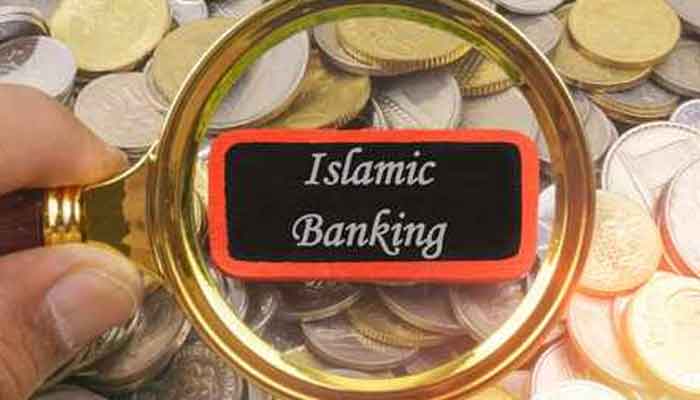Islamic banking holds huge growth potential: Moody’s
KARACHI: Rating agency Moody’s on Thursday said Islamic banking in Pakistan has substantial growth potential as around 80 percent of the country’s population remains unbanked in the Muslim majority economy.
“With Pakistan’s Muslim population reaching more than 96 percent of the country’s total population and 79 percent of the population remaining unbanked, according to World Bank data, the potential for Islamic banking penetration is substantial,” Moody’s Investors Service said in a report on Thursday.
“As Islamic banking institutions attract more shariah-compliant deposits, they will benefit from stronger profitability. Islamic banking products are attracting previously unbanked customers, creating new business opportunities for banks to grow their deposit base.”
Moody’s said Islamic deposits have grown 21 percent on a compound annual basis for the six-year period through June 2019, outpacing the 11 percent compound annual growth rate of all other deposit types.
“In addition, Islamic deposits do not earn interest under shariah law, thereby reducing interest expense and generating higher margins and profitability,” it said. “Additionally, the bulk of these deposits are low-cost, non-remunerated, shariah-compliant that will boost banks’ interest income and margins.”
Moody’s said the return on assets for Islamic banking institutions was 2.3 percent at the end of June 2019 versus an average of 1.6 percent for all banks in the system.
“As part of the national strategy to increase financial inclusion, the Pakistani government is focusing on a series of initiatives targeting the growth of the Islamic finance industry,” it added. The initiatives include the adoption of global reporting standards and the introduction of a shariah-compliant regulatory framework, such as easing initial capital requirements for Islamic banking subsidiaries, facilitating conversion into Islamic mode, introducing tax neutrality for shariah-compliant banking and crafting exceptions for using the Karachi Interbank Offered Rate as a benchmark for pricing financing.
“In addition, the government is further supporting the growth of Islamic finance through regular sukuk issuances,” Moody’s said. All five Pakistani banks Moody’s rates offer Islamic products via either subsidiary banks or Islamic windows, and “increased Islamic banking penetration is credit positive because it will support their profitability”. “A significant portion of Islamic banking customers come from populations that were previously unbanked, thus creating a new revenue source for banks.”
As of June 2019, there were five fully-fledged Islamic banks in Pakistan, including MCB Bank Limited (B3 negative, b31 ) subsidiary MCB Islamic Bank Limited, as well as 17 banks with standalone Islamic branches including Allied Bank Limited (B3 negative, b3), United Bank Ltd. (B3 negative, b3), National Bank of Pakistan (B3 negative, caa1) and Habib Bank Ltd. (B3 negative, caa1).
-
 Annular Solar Eclipse 2026: Where And How To Watch ‘ring Of Fire’
Annular Solar Eclipse 2026: Where And How To Watch ‘ring Of Fire’ -
 Zayn Malik Explains Past Comments About Not Being In Love With Gigi Hadid
Zayn Malik Explains Past Comments About Not Being In Love With Gigi Hadid -
 Internet Reacts To 10 Days Flight Ban Over El Paso
Internet Reacts To 10 Days Flight Ban Over El Paso -
 YouTube Music Tests AI-powered ‘Your Week’ Recap To Summarise Listening Habits
YouTube Music Tests AI-powered ‘Your Week’ Recap To Summarise Listening Habits -
 Kelly Clarkson Ready To Date After Talk Show Exit?
Kelly Clarkson Ready To Date After Talk Show Exit? -
 Is AI Heading Into Dangerous Territory? Experts Warn Of Alarming New Trends
Is AI Heading Into Dangerous Territory? Experts Warn Of Alarming New Trends -
 Google Updates Search Tools To Simplify Removal Of Non-consensual Explicit Images
Google Updates Search Tools To Simplify Removal Of Non-consensual Explicit Images -
 Chilling Details Emerge On Jeffrey Epstein’s Parties: Satanic Rights Were Held & People Died In Rough Intimacy
Chilling Details Emerge On Jeffrey Epstein’s Parties: Satanic Rights Were Held & People Died In Rough Intimacy -
 50 Cent Gets Standing Ovation From Eminem In New 'award Video'
50 Cent Gets Standing Ovation From Eminem In New 'award Video' -
 Bad Bunny Delivers Sharp Message To Authorities In Super Bowl Halftime Show
Bad Bunny Delivers Sharp Message To Authorities In Super Bowl Halftime Show -
 Prince William 'worst Nightmare' Becomes Reality
Prince William 'worst Nightmare' Becomes Reality -
 Thai School Shooting: Gunman Opened Fire At School In Southern Thailand Holding Teachers, Students Hostage
Thai School Shooting: Gunman Opened Fire At School In Southern Thailand Holding Teachers, Students Hostage -
 Maxwell Could Get 'shot In The Back Of The Head' If Released: US Congressman
Maxwell Could Get 'shot In The Back Of The Head' If Released: US Congressman -
 Britain's Chief Prosecutor Breaks Silence After King Charles Vows To Answer All Andrew Questions
Britain's Chief Prosecutor Breaks Silence After King Charles Vows To Answer All Andrew Questions -
 New EU Strategy Aims To Curb Threat Of Malicious Drones
New EU Strategy Aims To Curb Threat Of Malicious Drones -
 Halle Berry On How 3 Previous Marriages Shaped Van Hunt Romance
Halle Berry On How 3 Previous Marriages Shaped Van Hunt Romance




